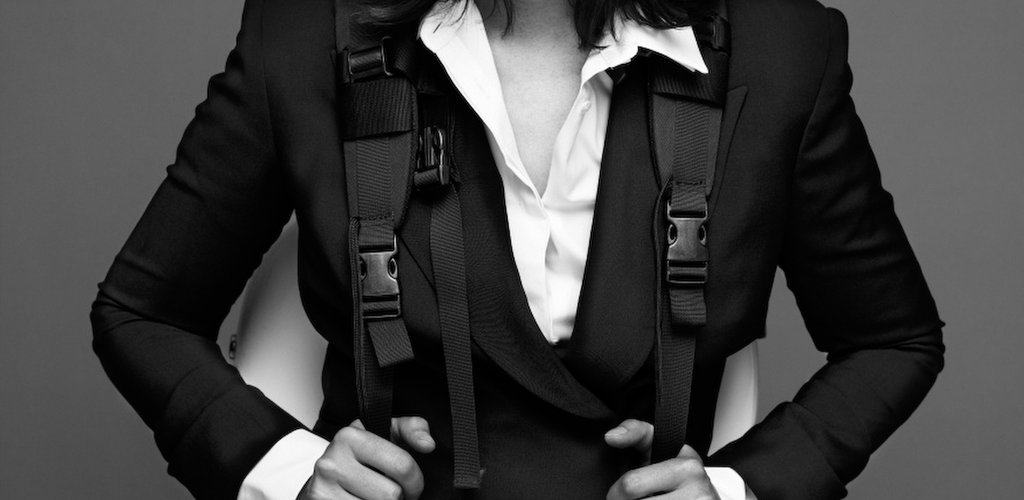“The goal of Bridging Europe is to get to know the flavours of a European country. Besides the wonderful tastes of French food and drink, Verlaine’s poems, Buñuel’s films, Monet’s colours or Debussy’s chords are similarly mouth-watering, harmonious and creative. Even though we are only going to get a little taster of this vast menu, we won’t be disappointed.”
– Iván Fischer, BFO Music Director “With Bridging Europe, we draw attention to what a colourful family we belong to as members of the European community. This year, we would like to present the ‘French style’, one of the pillars of our culture. French erudition has plenty in common with Hungarian cultural traditions, and they are worthy of discovery.” – Csaba Káel, CEO of Müpa Budapest On 22 September, the BFO’s Baroque Ensemble, led by the internationally-renowned French early-music specialist, Hervé Niquet alongside the world-famous soprano Chantal Santon-Jeffery, will be performing music by Campra, Rebel and the undisputed master of French baroque music, Rameau. The BFO will be giving its triple symphony orchestral concert on 23, 24 & 26 September, and invites you to travel back in time to the 19th and 20th century bohemian world of Montmartre’s artists. Four very different, yet unmistakeably French composers make up the programme. As well as the impressionists Debussy and Ravel, we are going to be meeting the emotional and endearingly-eccentric Erik Satie, followed by a journey to the second half of the twentieth century for Henri Dutilleux’s modern, poetic and colourful violin concerto, with Chinese violinist Ning Feng. One of the interesting things about the BFO’s contemporary concert on 25 September is that, rather than the well-known modern composers (Messiaen and Boulez), the choice fell on rarely heard but extremely original authors. Besides Dutilleux, whose centenary was celebrated in January 2016, Gérard Grisey, the pioneer of spectral music, and Georges Aperghis, the Paris-based Greek composer, will be showing us the new directions of 20th century French music. You may find the soloist familiar, because the French-American cellist, Sonia Wider-Atherton, is bringing her unique sound back to Budapest. The opening concert of the French days on 21 September will feature Michel Legrand and his trio. Legrand has written the music to many Oscar-winning films (Summer of ‘42; Yentl; The Thomas Crown Affair). He is decorated with five Grammy Awards as a pianist and composer. His concert, tailor-made for a Hungarian audience, is going to feature Nikoletta Szőke as a guest singer, and in all likelihood Legrand will be performing several of his evergreen numbers. On 24 September, we will be indulging in the punk-driven momentum of the new wave of French world music, alongside a mixture of the bal-musette style with accordion accompaniment and manouche jazz with the Breton ensemble La Gâpette. On 27 September, the trend-setting violinist Jean-Luc Ponty is going to be performing with his ensemble. The concert by the legendary jazz musician, known for his collaborations with the Modern Jazz Quartet, Frank Zappa, Elton John, Al Di Meola and John McLaughlin, is also going to be a real treat for those on the lookout for African rhythms. The finale, at the Béla Bartók National Concert Hall on 28 September, will see a performance by Juliette Gréco - an iconic figure of rebellious and wild youth in post-WWII Paris. The singer, nicknamed the ‘Muse de l’existentialisme’, had songs dedicated to her by some of the best composers of the time, including Sartre, Sagan, Prévert, Mauriac and Camus; she also won renown as an actress. The legendary artist is going to be performing with her regular accordion-playing accompanist. The spirit of Magyar Műhely (Hungarian Workshop), one of the longest-standing Hungarian literary journals, which was originally founded in Paris and later moved to Hungary, is the inspiration behind the French-Hungarian literary performance night Transzakció, that will traverse borders and genres on 26 September. The performance promises to be spectacular and astounding; it will make you question everything you thought you knew about literature. The première of the Krisztián Gergye Company’s Lautrec táncolni fog (Lautrec will dance) on 23 September, will conjure up the atmosphere of 1900s’ Montmartre. The visuals of the performance, in cabaret grotesque style and accompanied by live music, are reminiscent of the world of the great visual artist Toulouse-Lautrec. Those expecting the usual multi-genre approach of Gergye will not be disappointed. The festival will have an abundance of family programmes; the 24 September performance of L’Histoire du soldat (The Soldier's Tale) will be sung in its original language with Hungarian subtitles. In this work by the French-speaking Swiss writer, Ramuz, the soldier who sold his soul to the devil is in a desperate struggle with the forces of evil. The bitterly ironic, thriller-like tale’s music is one of the greatest accomplishments of Stravinsky’s stay in French Switzerland. For the fourth time now, Bridging Europe festival is putting European identity in the spotlight through the culture of a European country, invoking a richness of genres. Between 21 and 28 September, the focus is going to be on France, with its multi-layered culture and rich musical heritage. During the festival, art workshops, round-table discussions and exhibitions will also serve to convey the peculiarities and the latest trends of French culture to as broad an audience as possible.